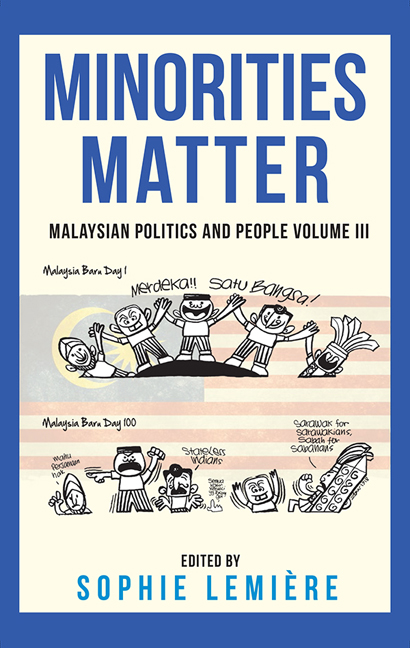Book contents
- Frontmatter
- Contents
- Acknowledgements
- Foreword
- Introduction
- Part I Engaging Politics: The Role of Minorities in GE14 and Beyond
- Part II Building Democracy: Malaysia Baru and the (Im-)possible Reform
- 6 Malaysia – A State of Sanctuary?
- 7 The Image of Laziness and the Malaysian Middle Class: Unpacking the Politics of Indolence
- 8 Poverty, Inequality and Youth Mental Health: Psychological Distress is Political
- 9 Competing Rights Talk and Pakatan Harapan's Incoherent Human Rights Agenda
- 10 The Court of the King of Hearts: The Long Failure of the Malaysian Judiciary – A Legal and Personal Perspective
- List of Contributors
8 - Poverty, Inequality and Youth Mental Health: Psychological Distress is Political
from Part II - Building Democracy: Malaysia Baru and the (Im-)possible Reform
Published online by Cambridge University Press: 25 January 2020
- Frontmatter
- Contents
- Acknowledgements
- Foreword
- Introduction
- Part I Engaging Politics: The Role of Minorities in GE14 and Beyond
- Part II Building Democracy: Malaysia Baru and the (Im-)possible Reform
- 6 Malaysia – A State of Sanctuary?
- 7 The Image of Laziness and the Malaysian Middle Class: Unpacking the Politics of Indolence
- 8 Poverty, Inequality and Youth Mental Health: Psychological Distress is Political
- 9 Competing Rights Talk and Pakatan Harapan's Incoherent Human Rights Agenda
- 10 The Court of the King of Hearts: The Long Failure of the Malaysian Judiciary – A Legal and Personal Perspective
- List of Contributors
Summary
Mental health problems are rising among Malaysian youth, according to national statistics. In 2017, the Malaysian National Health and Morbidity Survey (NHMS) revealed that two in five school-going adolescents struggled with anxiety issues, while one in five were depressed. Based on Depression, Anxiety and Stress Scale (DASS-21) scoring, at least one-fifth of these students regularly experienced a range of emotional difficulties, including hopelessness, self-deprecation, and devaluation of life. Meanwhile, between 2006 and 2015, the prevalence of 16 to 19-year-olds reporting psychological problems in previous NHMS surveys increased almost triple-fold, rising from 14.4 per cent to 34.7 per cent.
From a health and development perspective, these figures have sobering implications. The onset of a mental disorder in adolescence invites social and economic setbacks that may last well into adulthood, including functional impairment, exposure to stigma and impaired quality of life. In light of mounting evidence of rising youth mental health issues, policy planners must prioritise early stage interventions that act to check potential psychological disturbances from progressing into full-blown disorders. The key measures to be taken include implementing and providing access to treatment services and support for vulnerable youth groups.
Beyond this, systematic research that seeks to build a solid evidence base for the wider social, cultural, and political determinants of youth mental health is much needed. In the long term, understanding the issues perpetuating youth mental distress will help drive better policies that empower the youth to thrive, nourish and protect their own mental well-being.
Introduction
In recent years, mental health issues have increasingly become a health concern for young people worldwide. According to the World Health Organization, as of 2018, mental health conditions accounted for 16 per cent of the global burden of disease and injury in people aged 10–19 years. Globally, depression was found to be one of the leading causes of illness and disability among adolescents, while suicide was the third leading cause of death in 15–19 years old (World Health Organization, 2018).
The rising tide of youth mental health issues is a worrying trend. The second decade of a person's life is a unique and formative period, and sets the stage for the foundations of good physical and mental health in adulthood.
- Type
- Chapter
- Information
- Minorities MatterMalaysian Politics and People Volume III, pp. 124 - 147Publisher: ISEAS–Yusof Ishak InstitutePrint publication year: 2019



